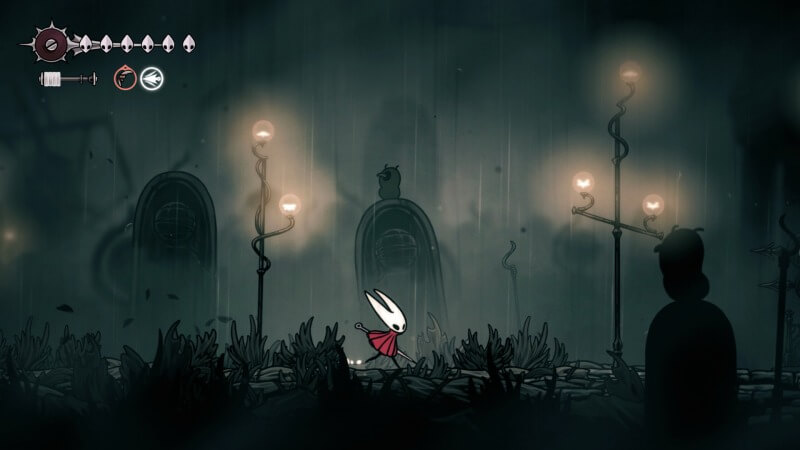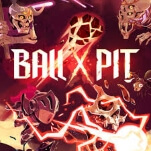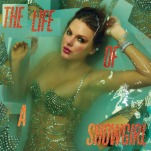Games Criticism Isn’t Dead, But That Doesn’t Mean It Can’t Get Worse

Lots of people yelled at me for writing the piece “Silksong Hastens the Death of the Critic.” As you would expect, few of the people yelling appeared to have read it, and fewer engaged with it in any substantive way. This proved the piece’s central point. Engagement with my analysis was largely limited to woeful misreads and fan posturing. There was glee at an entitled critic being so mad she didn’t get to play Silksong early. Meanwhile, I wasn’t playing or planning to write about it. Nevertheless, there were exceptions. On their site, No Escape, Kaile Hultner did me the honor of reading and engaging with what I had written. However, their response misjudged what I wrote and revealed the inadequacy of our reaction to the decline of professional criticism.
First of all, I think Hultner made a mistake that a lot of commentators on my article made: taking the narrow focus of the piece for a lack of consideration about the broader issue or a total disregard for alternatives. At one point, Hultner discusses the embargo writ large: “But what Benfell doesn’t talk about here is that these early codes often come with restrictive agreements not to discuss certain aspects of the game, usually narrative spoilers, sometimes mechanical ones. It’s tit for tat, skewed in the studios’ favor.” They are right that I don’t discuss it, but that’s because it’s not relevant to my thesis. The piece is not a referendum on the resemblance of games press to PR. It is not an exploration of the flaws and benefits of the embargo model. It is about how this specific instance is a reflection of a broader devaluation of criticism. I don’t think pointing out that the current embargo model is flawed harms (or even addresses) my argument. Additionally, other avenues of culture criticism, like books, grant pre-release copies to critics without the same kinds of restrictions that plague games media. Perhaps that is something we could fight for.
Hultner also claims that I overstate the issue. They quote my article’s thesis, “however small, this represents the deterioration of criticism as a profession, an art, and as a service to the audience,” but they omit “however small” and do not engage with “represents.” Representation does not imply a causal relationship. Setting the dramatic headline aside, I never say that Team Cherry’s policy will shape the future or that other companies will take cues from it. I do argue that it is a symptom of a broader disease.
Hultner concludes their essay with, “Just because [that critical conversation is] not happening this weekend doesn’t mean games media writ large is doomed, even if every other piece of news about the state of media does.” Again, that addresses a claim I did not make. In contrast, the piece puts this particular situation in conversation with the broader and more pernicious issues that affect the space. If you read the words I wrote, you’ll find my argument to be measured and specific.
I didn’t address this in the piece, because I believed it to be self-evident, but launch reviews are valuable. For one, games change a lot over time these days. Playing Baldur’s Gate 3 at launch is a significantly different experience than playing it now. In plain terms, it is worth having a coherent record of that initial experience. To make another point, even when early reviews are terribly written and poorly considered, they have value as a thing to respond to. Bioshock: Infinite caused huge ripples in the broader games crit sphere. The initial response was ecstatic, hagiographic even. A righteous set of independent critics tempered that euphoria through serious engagement with both the game and the criticism that had come before. That conversation was made possible through that initial wave of launch reviews, even if we can agree that most of them were bad.
This reflects the fact that alternative criticism benefits from a mainstream to react with and against. Games journalism was healthier, as an ecosystem, when there were overlapping worlds of discourses, when journalists responded to and quoted bloggers and when bloggers repudiated and pushed against critics. I don’t mean to suggest this never happens now or that this time was a bastion of healthy criticism. But this common space has shrunk.
Hultner and I both came up as bloggers during Waypoint‘s heyday, before its hard pivot to podcasts and its consolidation into “One Vice,” when Austin Walker and Rob Zacny were writing multi-thousand-word reviews and when it was host to a robust ring of freelance criticism and reporting. So many of the independent spaces we both circled, from Into the Spine to Uppercut, were direct or indirect offshoots of that more professional space. Professional critics encouraged and fostered independent and hobbyist criticism.
-

-

-

-

-

-

-

-

-

-

-

-

-

-

-

-

-

-

-

-

-

-

-

-

-

-

-

-

-

-

-

-

-

-

-

-

-

-

-

-








































